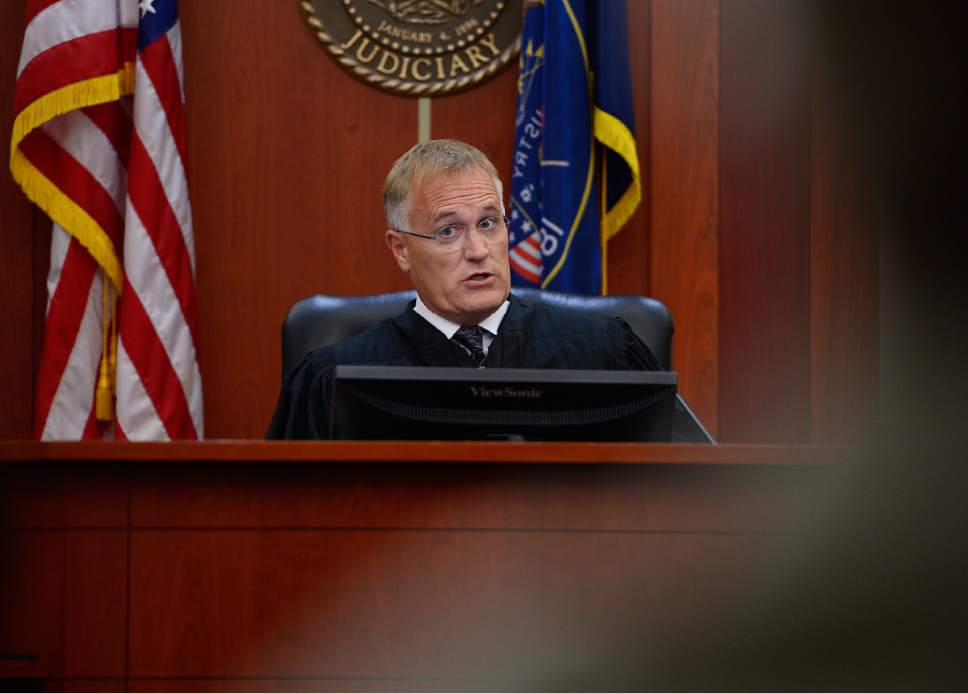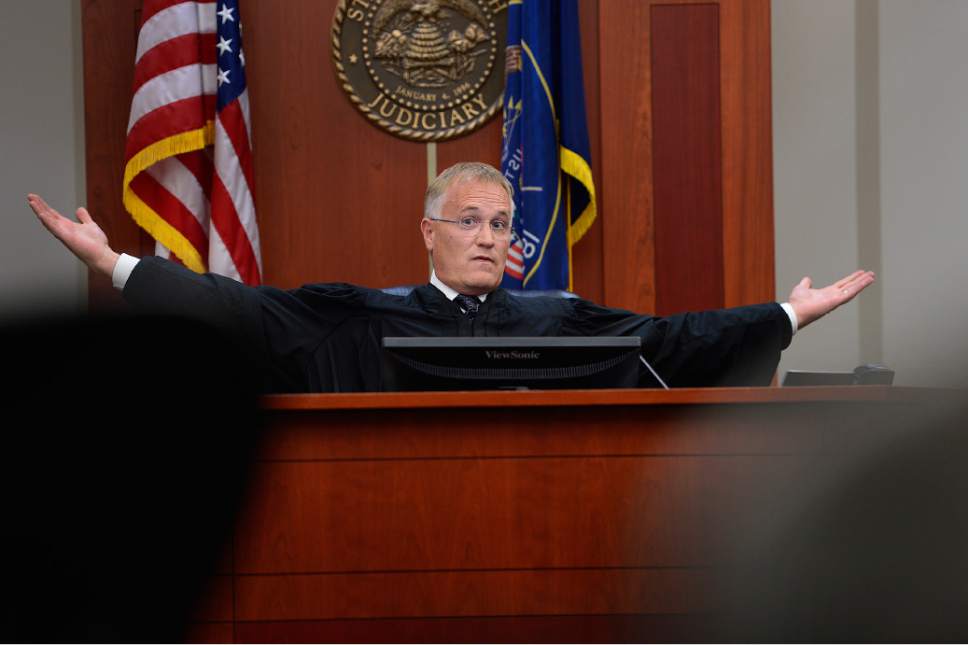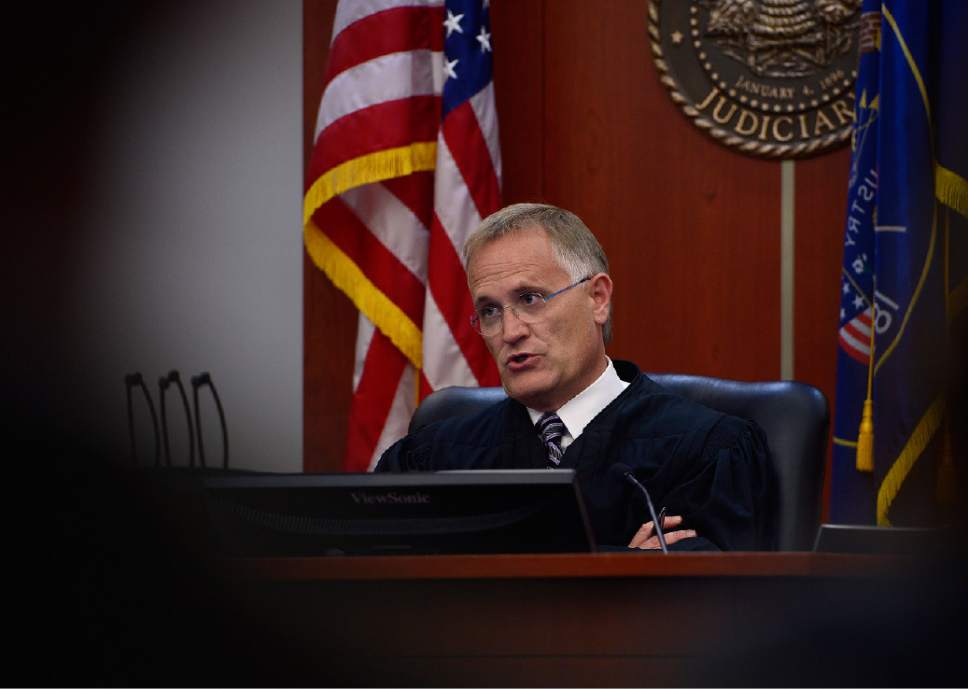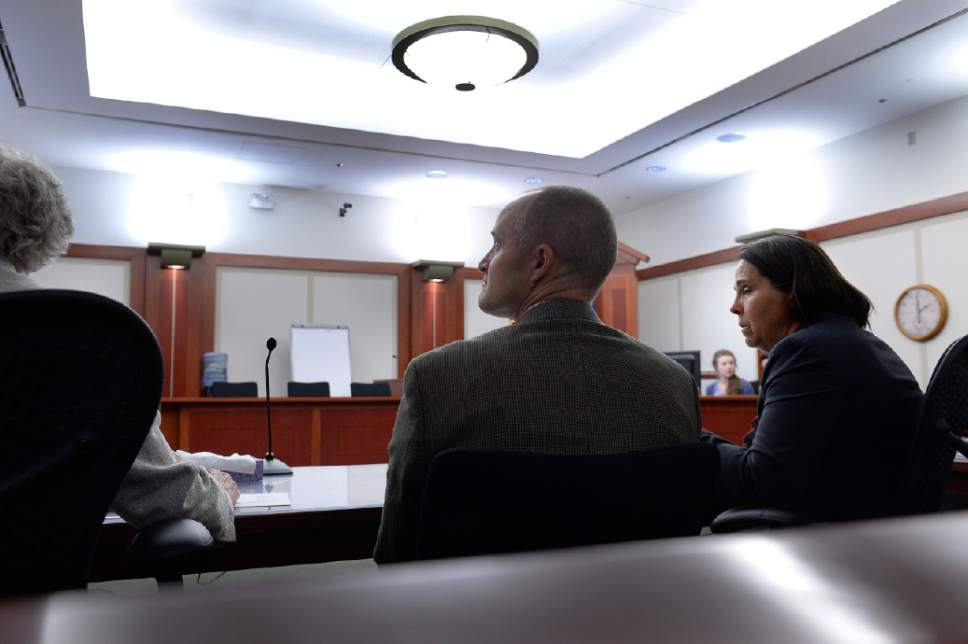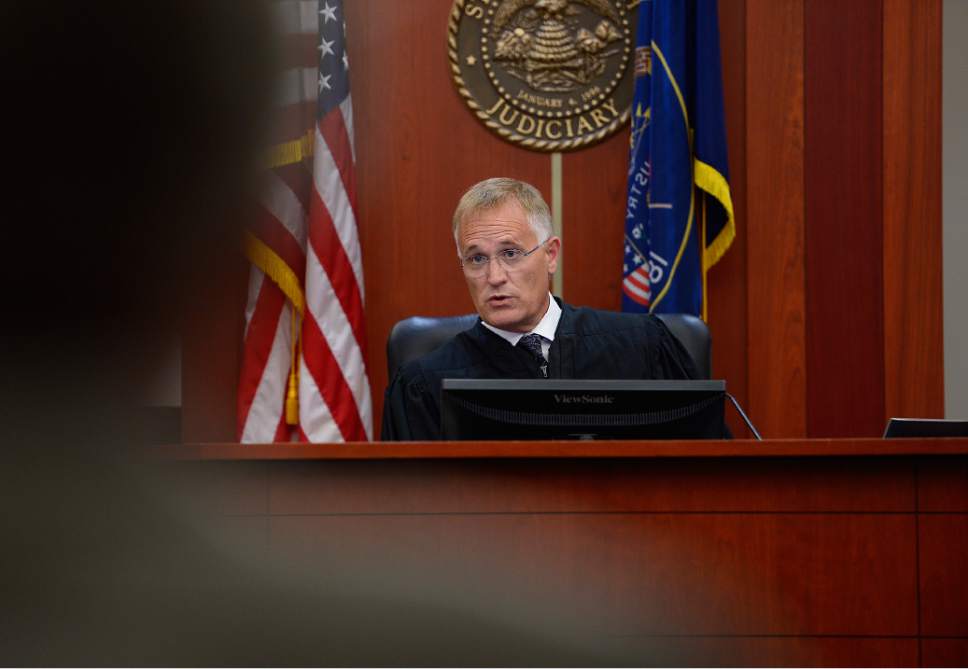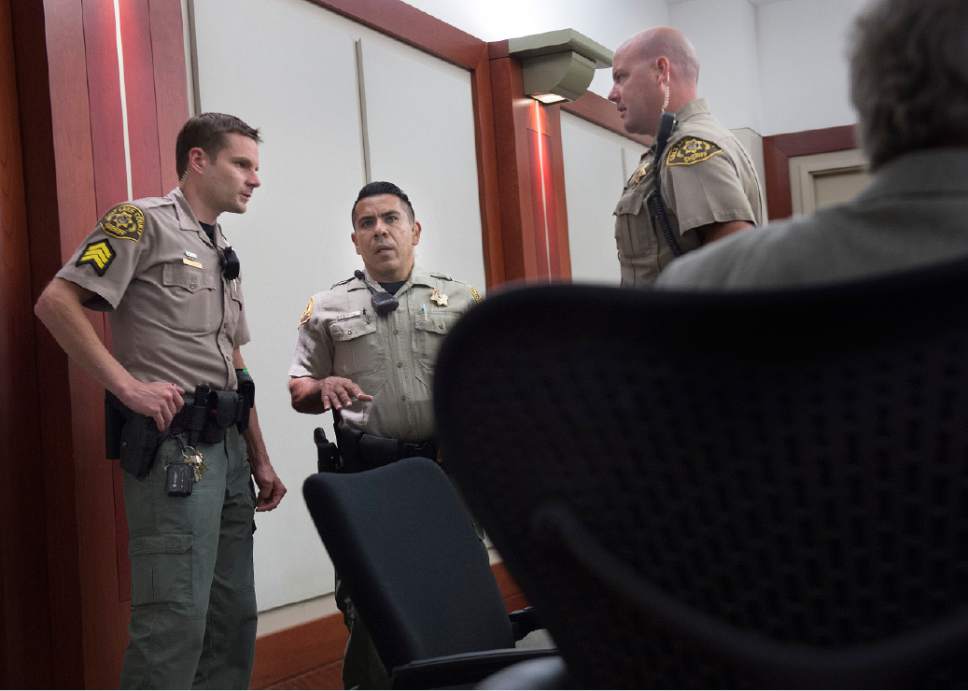This is an archived article that was published on sltrib.com in 2016, and information in the article may be outdated. It is provided only for personal research purposes and may not be reprinted.
When Judge James Michie deemed Friday that a now-17-year-old boy was not competent to stand trial in the sexual assault and death of his 12-year-old neighbor, the 3rd District Juvenile Court jurist relied on testimony that stretched on for days — all done behind closed doors.
What evidence led Michie to make his determination will never be made public. The judge ruled last week that the five-day hearing would be closed to the public and media.
Efforts like this to keep secret juvenile court proceedings are becoming more commonplace. In the past five weeks, defense attorneys and prosecutors have sought blanket closures in cases for five Utah teenagers charged in connection to three separate, violent episodes. That includes the case for the teens accused of running over and killing West Valley City police officer Cody Brotherson.
Attorneys representing Utah's media entities have fought these closures, arguing that state law allows media in the courtroom in serious cases — cases where there is almost always heightened public interest. But those who work with the youth accused in these crimes say sometimes closures are needed to protect a juvenile's privacy and support rehabilitation efforts.
Public access • In the early 1990s, Utah legislators began crafting a law that opened up juvenile courtrooms for those youth charged with serious offenses. Today, the law allows reporters to be present in juvenile court proceedings if the accused is over the age of 14 and charged with a crime that would be a felony-level offense in adult court. The proceedings can be closed, however, if a judge finds "good cause."
"The judge balances the privacy interest of the youth and the public interest as direct by statute and court rule," said Dawn Marie Rubio, the juvenile court administrator for Utah. "... Good cause is determined on a case-by-case basis."
Attorneys representing a coalition of Utah media organizations say there has been an increase of requested closures recently. Lawyer Michael O'Brien, who represents The Salt Lake Tribune, noted that there also has been an increase in recent months of juveniles accused of high-profile, violent crimes.
"This suggests that the Legislature made the right decision when it decided such court proceedings should be open," he said. "Open proceedings will perhaps help us figure out why there are so many violent acts being committed by juveniles right now."
Media attorneys have argued recently that the public should be allowed to know details of three high-profile incidents:
• In the case where Michie determined competency, the 17-year-old boy is accused of luring 12-year-old Kailey Vijil from her West Valley City home, claiming he needed help looking for a lost cat. He is accused of sexually assaulting the girl and strangling her in an overgrown horse pasture in July 2015. The boy is charged with aggravated murder and rape of a child.
• Attorneys also sought closures for a 14-year-old boy accused of shooting another teen outside a Sandy middle school in October. They withdrew their motion for closures after discussions with an attorney representing Utah's news outlets, and agreed that the hearings will remain open and defense attorneys could ask to close small portions if discussions of sensitive information is expected. The boy is charged with first-degree felony attempted murder and other weapons charges.
• Two 15-year-old boys and a 14-year-old boy have been charged with some sort of crime in connection to the Nov. 6 death of Brotherson, who was struck by a vehicle and killed while laying down a set of spike strips. Police say the three boys were in the car that struck Brotherson. But after 3rd District Judge Kimberly Hornak sealed the case, no other details about their charges or the court process have been made public. Next week, O'Brien will argue on behalf of a coalition of news outlets that the case should be unsealed.
O'Brien said access to the case is important because the death of a police officer wounds everyone in the community.
"The wound doesn't fully heal unless and until we know how the justice system deals with such a terrible event," he said. "And it may not heal at all if such proceedings are kept secret from the public. The press acts as a surrogate for the public to understand and report on how these important law and justice events play out."
Attorney Jeff Hunt, who represents The Deseret News and KSL in the case for the 17-year-old accused of aggravated murder, said it would have to take something "pretty extraordinary" to warrant closures. Even sensitive information used to determine competency should be public, he argues, if it is the basis of a judge's ruling.
"What we're fighting lately is this notion that [closures are needed] because it involves things that we think of as sensitive," he said. "But when that type of information is central to the court's determination of competency and certification, that's a different issue. You can't understand the basis of the court's decision without having access to that information. In the adult system, competency hearings are public. We have sensitive information that is heard every day in court and don't close the courthouse doors."
'A second chance' • But youth should be treated differently in the court system, said Pamela Vickrey, executive director for Utah Juvenile Defender Attorneys.
"The concern regarding both records and access to hearings is that children are not miniature adults," Vickrey said. "... We have juvenile court because we recognize children engage in impulsive behavior and make poor decisions, but they are also amenable to interventions, change and rehabilitation.
"We want to protect young people from the stigma of a criminal record, and easy access to juvenile hearings and records is contrary to the opportunity for a second chance."
Releasing information about a youth's schooling, mental health and details about their childhood, including any abuse and trauma, can be damaging to children and their families, Vickrey said. If a case is public, it can also threaten the youth's future employment or educational opportunities.
If charging information or other records fall under the law making it public, Vickrey said damaging information is often being released and publicized without giving judges or attorneys the opportunity to review the records and identify potential concerns.
"Once the records have been released, the harm cannot be undone," she said. "Motions to close the records are being filed in certain cases in an effort to slow down and give defense, prosecution and the judge an opportunity to review a child's individual circumstances and then make a decision as to whether release of the records is warranted."
Once in the juvenile court system, the goals for the young defendants are different than that of adults, said Jackie Chamberlain, the public information officer for Utah's Juvenile Justice Services. Where the adult system is punitive, the juvenile system focuses on developing youth into responsible adults, while still holding them accountable for their crimes. Chamberlain said most Utah juvenile defendants — more than 85 percent in the last five years — leave JJS's treatment program and commit no new felonies.
"Every young person deserves an opportunity to not have their mistakes permanently label them as delinquents," she said, "when we know that most kids will be successful after court involvement."
Twitter: @jm_miller


